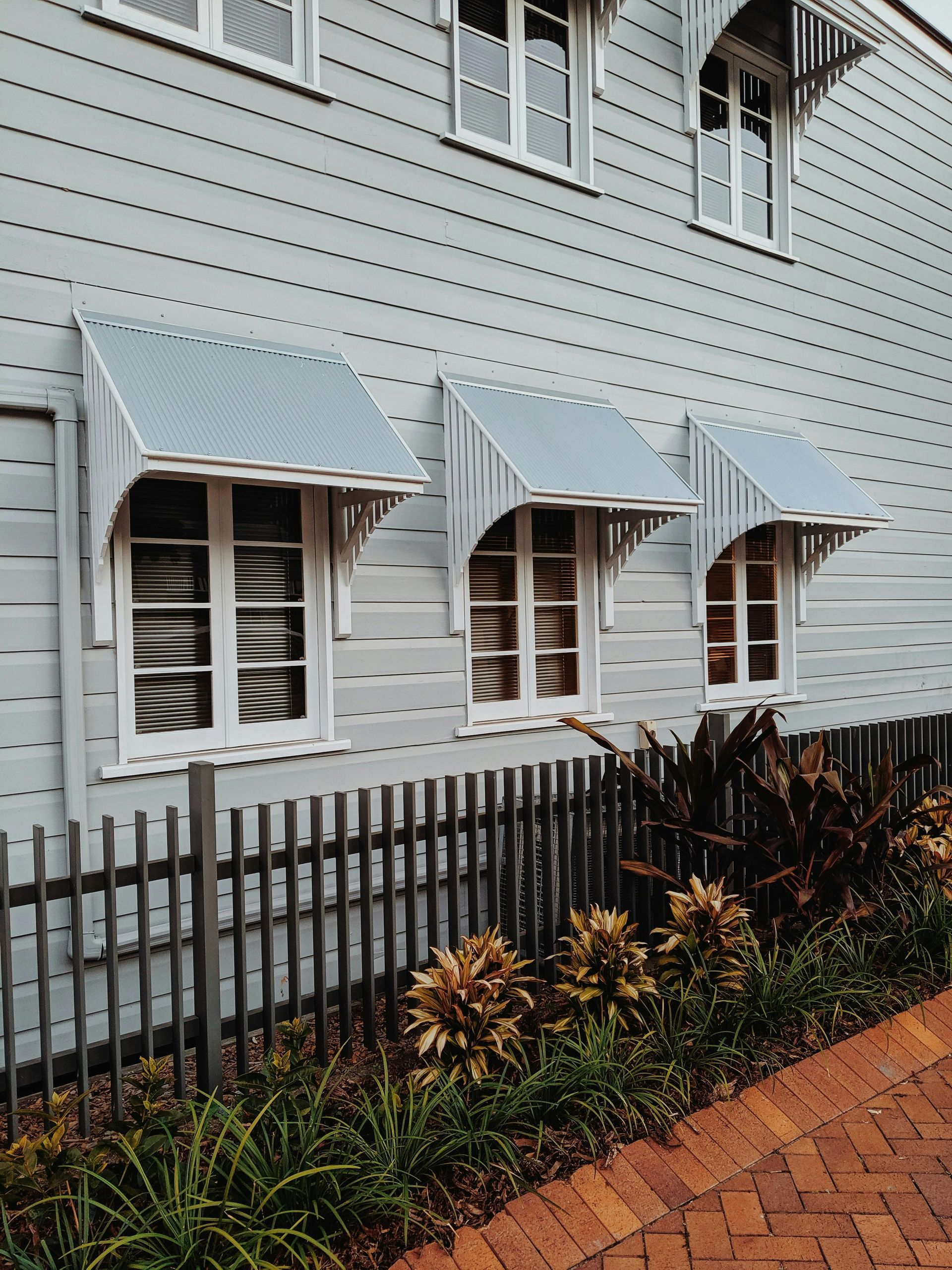Top Pest Control Tips
Prevent Infestations and Protect Your Home

The best way to deal with pests is to prevent them from entering your home in the first place. Pest infestations can cause significant damage to your property and can pose serious risks to your health. Whether it's rodents gnawing through wires, ants infesting your kitchen, or wildlife causing structural damage, taking a proactive approach to pest control can save you from unnecessary headaches and expenses. At Top Pest Elimination, we’ve put together a comprehensive list of expert tips to help you protect your home from unwanted pests.
1. Seal All Entry Points: Close the Doors to Pests
Pests often enter your home through small cracks, gaps, and openings, so the first step in preventing an infestation is sealing all possible entry points. Even the tiniest gap can be an open invitation for rodents, insects, and wildlife to sneak in.
Consider taking the following steps to effectively block off access points:
- Inspect windows and doors: Make sure all windows and doors are tightly sealed. Consider installing weatherstripping or door sweeps to close any gaps.
- Check your foundation: Inspect your home’s foundation for cracks or holes. Use caulking to seal these openings.
- Seal gaps around pipes and wires: Rats and mice can squeeze through surprisingly small holes, including those around plumbing, electrical wires, and vents. Ensure these gaps are tightly sealed with materials like caulking, steel wool, or mesh.
- Check attic vents and chimneys: These are common entry points for bats, squirrels, and raccoons. Install sturdy mesh screens to block them out.
By addressing potential entry points, you significantly reduce the chance of pests entering your home.
2. Keep Your Home Clean and Clutter-Free: Eliminate Hiding Spots
A clean, organized home is less inviting to pests. Insects like ants and cockroaches are often attracted to food particles and spills, while rodents thrive in cluttered areas where they can hide and nest.
Here’s how to keep your home clean and less inviting to pests:
- Clean up food crumbs and spills immediately: Make sure to wipe down countertops, sweep floors, and clean up any food scraps in your home.
- Store food properly: Keep food in sealed containers and avoid leaving it out overnight. This is especially important for pet food and pantry staples.
- Keep your kitchen tidy:
Wipe down kitchen counters and sweep the floor daily to remove crumbs and food debris.
- Declutter storage areas: Rodents love cluttered basements and attics where they can nest. Declutter your home regularly and store items in sealed, pest-proof containers.
- Empty trash regularly: Ensure your trash bins have tight-fitting lids, and take out the trash frequently to avoid attracting pests.
By maintaining a clean environment, you’re making your home much less attractive to pests.
3. Remove Standing Water: Say Goodbye to Moisture-Attracting Pests
Moisture is a big draw for many pests, including mosquitoes, cockroaches, and rodents. Excess water around your home provides an ideal breeding ground for pests and also gives them easy access to water.
Follow these steps to eliminate moisture in and around your home:
- Fix leaky pipes and faucets: A leaky faucet or pipe provides a constant water source for pests. Repair any leaks in your plumbing promptly.
- Check your roof for leaks: Roof leaks can cause water to seep into your attic, attracting pests like termites and rodents. Be sure to address any leaks immediately.
- Empty standing water:
After heavy rainfall, make sure there are no puddles or stagnant water near your home. Empty birdbaths, kiddie pools, and clogged gutters to prevent water accumulation.
- Ensure good ventilation: In damp areas like basements and bathrooms, use dehumidifiers and ensure proper ventilation to prevent moisture buildup.
By removing excess moisture, you reduce the likelihood of pest infestations significantly.
4. Maintain Your Yard: Keep Pests Away from Your Home
The condition of your yard plays a huge role in keeping pests away from your home. If your yard is overgrown, pests like rodents, termites, and insects have ample hiding spots, making it easier for them to find their way inside.
Follow these tips to make your yard less appealing to pests:
- Trim trees and shrubs: Overhanging branches can provide easy access to your roof for squirrels and other pests. Trim back any branches that hang near your home.
- Mow your lawn regularly: Tall grass and weeds offer shelter for pests. Keep your lawn well-maintained and regularly mow it to eliminate potential hiding spots.
- Remove debris: Piles of leaves, mulch, and firewood are prime nesting grounds for pests. Store firewood away from the house and clean up any yard debris regularly.
- Seal cracks in your driveway and sidewalks:
Cracks and gaps in the driveway or sidewalks can provide entry points for pests, especially ants and termites. Fill in these gaps with concrete filler.
A well-maintained yard is less likely to attract pests and will help keep them from moving closer to your home.
5. Use Pest Barriers: Create a Shield Around Your Home
Preventing pests from getting inside is not just about sealing entry points—it’s also about creating effective barriers that keep them out.
Consider the following pest control strategies:
- Install mesh screens: Add screens to windows, vents, and chimneys to keep flying insects and wildlife out.
- Use rodent-proof materials:
For rodents, use wire mesh or steel wool to seal cracks in the foundation or walls.
- Place barriers around your garden:
Raised garden beds and specific fencing can help keep burrowing pests like rodents out of your garden area.
Creating physical barriers around your home will significantly reduce the risk of infestations.
6. Schedule Regular Pest Control Inspections
One of the most effective ways to keep pests out of your home is by scheduling regular pest control inspections. A trained technician can spot potential issues before they become major infestations.
Here’s why you should consider regular inspections:
- Early detection: Pest control professionals can identify hidden infestations that you might not see on your own.
- Targeted treatments: Experts can provide tailored treatments based on the types of pests common in your area.
- Preventative advice: Professionals offer advice on how to maintain a pest-free environment and keep your home secure.
By scheduling routine inspections, you ensure your home remains protected year-round.
7. Don’t Ignore the Signs of Pest Activity
If you notice signs of pests, such as droppings, gnaw marks, or unusual sounds in your walls or attic, don’t wait to act. Early intervention is key to preventing a small problem from becoming a major infestation.
Here are some common signs to watch out for:
- Rodent droppings near food sources or entry points.
- Visible trails of ants or other insects.
- Gnaw marks on furniture or food packaging.
- Unexplained sounds like scratching or scurrying at night.
By responding to these early warning signs, you can avoid more extensive damage and reduce the cost of pest control treatments.
8. Keep Screens and Doors Closed
Especially during warmer months, pests such as flies, mosquitoes, and bees can easily enter your home through open windows or doors.
To keep these insects outside, make sure to:
- Install tight-fitting screens on windows, vents, and doors.
- Close doors promptly and avoid leaving them open for extended periods.
- Use weatherstripping
to ensure doors and windows are sealed tightly.
This simple step can make a big difference in reducing pest entry into your home.
9. Maintain Your Garbage and Waste Management
Pests are often attracted to food waste and garbage that is not properly managed.
Here are some tips to minimize waste-related infestations:
- Use tightly sealed trash bins both inside and outside the home.
- Take out the trash frequently, especially during the summer months when odors and pest attraction are stronger.
- Store compost properly and avoid leaving organic waste exposed outside for long periods.
Good waste management practices are essential in keeping pests away from your property.
10. Partner with Us for Ongoing Pest Protection
While these pest control tips can significantly reduce the risk of infestations, partnering with a professional pest control company is the best way to ensure long-term protection. Top Pest Elimination offers comprehensive pest control services that go beyond prevention.
Our expert team provides regular inspections, custom treatments, and long-term monitoring to keep your home safe from pests. By partnering with us, you gain peace of mind knowing that your home is protected by the latest pest control technologies and methods.
Whether you're dealing with a current infestation or just want to prevent one, we’re here to help. Contact us today for a free consultation and let us help you maintain a pest-free home!
Trusted by Families Like Yours.










